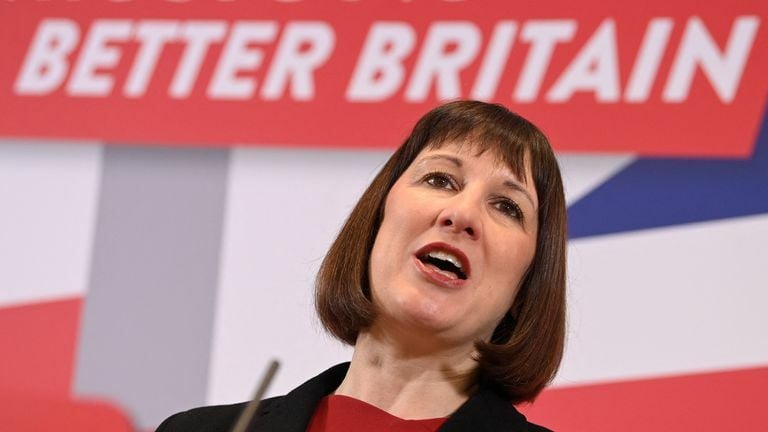Labour scales back £28bn green plan, citing economic instability

The Labour Party has scaled back its ambitious £28bn green prosperity plan, attributing the change to increasing interest rates and the economic “damage” caused by the Conservatives. Shadow Chancellor Rachel Reeves emphasised the importance of prioritising “economic stability, financial stability.” Initially, the party had committed to investing £28bn annually to expedite the transition towards net-zero emissions by 2050. However, Reeves acknowledged that the economic landscape has shifted since the original promise.
Reeves spoke on BBC Radio 4’s Today programme, stating: “The Tories have crashed our economy, and as a result interest rates have gone up 12 times, inflation is now at 8.7% and I’ve always said our fiscal rules are non-negotiable.” She went on to say that economic and financial stability will always come first under Labour. “That’s why it’s important to ramp up and phase up our plans to get to the investment we need to secure these jobs so that it is also consistent with those fiscal rules to get debt down as a share of GDP and to balance day-to-day spending.”
Reeves clarified that the £28bn target, once intended to be allocated in the first year of a Labour government, is now a goal to work towards. She rejected accusations of a U-turn, insisting that the spending figure would not be “zero.” When asked if Labour might not borrow at all during its first year in power for the plan, she responded that the party is “more ambitious than that,” but declined to provide a specific number.
“We haven’t had the final set of numbers by the government so we’re not going to give our final set of numbers,” Reeves explained. Regarding her initial pledge, she admitted: “The truth is I didn’t foresee what the Conservatives would do to our economy – maybe that was foolish of me.”
This adjustment follows reports in The Times that Labour leader Sir Keir Starmer faced pressure to abandon the plan. The party has also received criticism for a proposal to ban new oil and gas developments in the North Sea and for accepting donations from Dale Vince, a prominent supporter of the Just Stop Oil campaign group.
Reeves dismissed rumours of a disagreement with shadow climate change secretary Ed Miliband, asserting that they are on the “same page.” “Keir, Ed and me are all on the same page on this,” she said. “We know that unless we have this green prosperity plan those jobs and investments will go elsewhere, but that everything we do must rest on these pillars of economic responsibility and fiscal responsibility.”
Miliband tweeted: “Some people don’t want Britain to borrow to invest in the green economy. They want us to back down. But Keir, Rachel and I will never let that happen. Britain needs this £28bn a year plan and that is what we are committed to.”
Chancellor Jeremy Hunt described the change as “superficial” and “still adds around US$100billion to our national debt – meaning higher mortgages for families and higher debt interest bills for taxpayers.” He argued that a responsible approach should tackle inflation instead of fuelling it.
Conservative Party Chair Greg Hands claimed that Sir Keir’s economic policy is “in tatters – after even he and Rachel Reeves realised it would lead to disaster.”
SNP’s Westminster leader Stephen Flynn criticised the move as the “latest in a long line of broken promises from the pro-Brexit Labour Party – and one that could have very real and damaging consequences for Scotland’s green energy potential.” He added, “The best way to secure economic growth is to properly invest in the renewables gold rush and rejoin the EU – the Labour Party has now turned its back on both and it will be ordinary families who pay the price as the UK economy falls behind and the cost of living soars.”
Latest Thailand News
Follow The Thaiger on Google News:


























